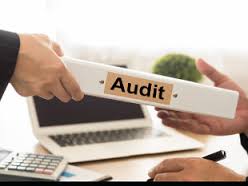 Foreign law and accountancy firms now have a chance to operate in India on their own. On January 3, the ministry of commerce and industry amended a rule allowing such foreign firms to set up offices and advise clients from SEZs. The move will initially benefit Gujarat International Finance Tec-City (GIFT).
Foreign law and accountancy firms now have a chance to operate in India on their own. On January 3, the ministry of commerce and industry amended a rule allowing such foreign firms to set up offices and advise clients from SEZs. The move will initially benefit Gujarat International Finance Tec-City (GIFT).
Current regulations so far do not permit multinational law firms to operate in the country. Indian law and accountancy firms were also not allowed to operate from any of the SEZs. That rule has now been amended which would benefit financial centres.
The notification, dated January 6 but issued on January 3, by the department of commerce allows foreign law and accountancy firms to be established in SEZs. The earlier version of the rule, prior to the amendment, had excluded legal services and accounting.
“This will be the big enabler for the legal and accounting firms to expand their services in multi-services SEZ with IFSC (International Finance Service Centre) and thereby export their services to various global players,” said Nitin Potdar, partner, J Sagar, a law firm. As of now, only GIFT is a multi-services SEZ with an IFSC in India.
“Until now, no foreign law firm could operate in India and not even Indian firms were allowed to provide their services in any of the SEZs. The new amendment allows not only Indian law or accountancy firms to set up a base in GIFT, but even multinationals can directly advise upon international disputes or arbitration by setting up a base there,” Dipesh Shah, head, IFSC at GIFT, told ET.
While many foreign professional services firms such as Deloitte, PwC, KPMG and EY are present in India, they cannot directly operate as auditors and require an Indian affiliate. This amendment does away with that requirement at least in the case of GIFT.
Many Indian law firms have been opposing the entry of multinational law firms in India for some time. Going ahead, many multinationals could set up base in India but they will only be able to advise on cross-border transactions or disputes. Some are also looking to quickly take advantage of this and set up base in GIFT.
“Allowing law firms in GIFT for arbitration or other work would work as a catalyst for economic activities in the country. We ourselves are in discussions to set up an office in GIFT,” said Nishith Desai, founder of law firm Nishith Desai Associates.
But the amendment does not permit foreign law firms to advise Indian clients on local businesses and regulations. Their advice and help would be strictly restricted to arbitrations fought in GIFT, international mergers and acquisitions, international taxation or any other advice for operations outside India.
Industry experts say some foreign law firms may consider partnerships with Indian firms under the arrangement. There could also be stiff competition as both Indian and foreign firms would compete for the same clients in GIFT.
“Many law firms may set up their base in GIFT but that would take some time. And I am a firm believer that it would only lead to betterment of all law firms,” said Desai.
Source: http://economictimes.indiatimes.com/articleshow/56529046.cms






